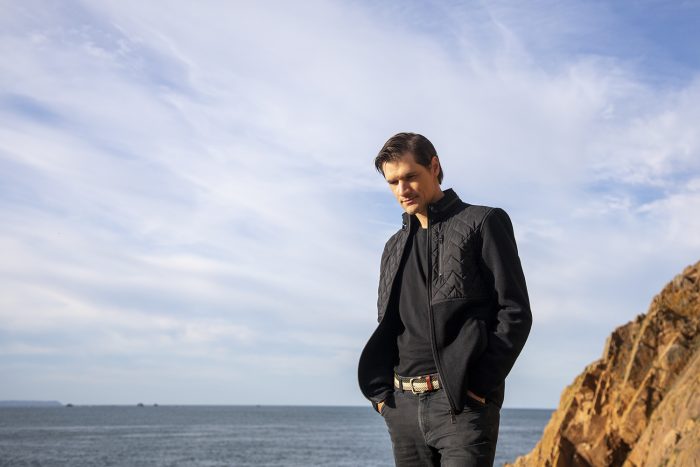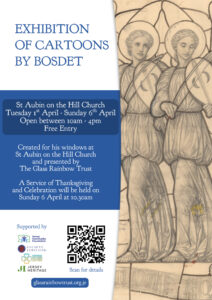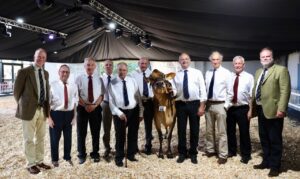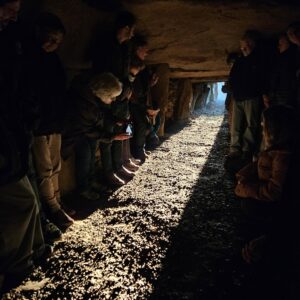
Alasdair Crosby met Jersey composer Charles Mauleverer to talk about the ‘Music Manifesto’. This interview is reprinted from the Jersey Evening Post, with its kind permission
Jersey composer Charles Mauleverer has been in the Island recently as part of the launch of the ‘Music Manifesto’. It is hardly surprising that, for an interview, he requested we meet at the café at Jersey Zoo. He has a favourite seat, on the outside terrace, with a view over the zoo’s grounds. When he is in Jersey – his family’s home – he often uses the seat as his office.
‘I can definitely credit the Zoo with influencing my love for the natural world, without which I might not have written my First ‘Environmental’ Symphony,’ he said.
His musical cv at present consists of three symphonies; work in progress at the moment includes finishing off a series of 24 preludes – 14 have been composed so far. A musical project titled ‘Faithful and Free’ had been designed to be performed at the 75th anniversary of Liberation in 2020, but, of course, Covid spoiled that, as has done with so many other things. Instead, he had the novel experience of organising a children’s choir – with all the individual members of it in lock-down in their own homes.
In short, Charles is an award-winning composer, film composer, performer, and collaborator, who, in his own words, ‘harnesses the power of music to tell stories of our time’.
Asked how he would describe his music, he said: ‘much of it is approachable and in the tradition of western tonal harmony. In my two Jersey Symphonies there are much more experimental moments. I think my musical language is always evolving and I wouldn’t want to define my work as one particular style.’
Charles was born in Jersey, started his schooling in the Island, and Jersey is where his interest in music began.
‘I had some wonderful music teachers here, all of them enormously encouraging. I started learning the piano and violin early on and singing with St Michael’s School Choir. I was encouraged to continue my studies in England.’
He gained a music exhibition to Winchester, followed by studying music at Oxford and then winning a scholarship to study for a masters at the Royal College of Music.
Since then he has enjoyed an international music career, and has had his music performed and recorded by a host of orchestras and films; documentaries and advertisements featuring his music have been shown at festivals around the world.
‘One of the things I am currently looking into, is how best to put out music in an age when people consume it so many different ways. Most of the ways in which people do consume music are not sustainable – and will not be at all sustainable for the next generation, particularly with the advent of the digitisation of music.’
Over the past few weeks he has been back in Jersey for the launch of ‘The Music Manifesto’ and the Creative Island Partnership’s ‘Creative Discussion.’ The manifesto is a £9,651.77 report produced by creative industry consultants, that summarise the views of the music community on how the Island’s musical scene could be improved. It aims to emphasise the cultural, economic and social value of music; to quote from it: ‘The music manifesto is a rallying cry for Islanders, politicians, decision-makers, music lovers and practitioners to join together in support of the music scene.’
It has set out a wish-list for the music sector – calling for more music spaces, including a multi-purpose venue that could act as a creative hub, as well as rehearsal rooms, studios and performance spaces elsewhere in the island.
Other points include a need for investment in music education, a dedicated music therapy programme in hospitals and schools, more local music courses, and a music apprenticeship scheme to provide students with professional experience. It also asks, inter alia, for an annual, multi-genre Festival of Music.
‘The Music Manifesto is representative of all kinds of musicians in the Island, who have a passion for the arts and a recognition of the value of the arts to people’s lives. There are many mental, physical, and educational benefits to making music, being involved in a community, and collaborating with other people. There are plenty of studies now that demonstrate the complementary benefits of learning an instrument, listening to and studying music.’
Charles continued: ‘We have so much potential for more amazing music making going on right across Island life, across so many different types of genres, just as we had in the fantastic and diverse talent on display at the manifesto launch. People are crying out for more places where they can perform, rehearse and record, as well as for more integration of publicity for what they are doing. We are asking for music to be better advocated in government, for more investment, more musical opportunities for children and young people, especially those from more deprived communities. We want Jersey to become an attractive location for other creative talent, and to improve the infrastructure across the board for achieving this.’
There were, he said, two wonderful orchestras and more burgeoning ensembles in the offing, but nowhere really suitable for them to perform in the Island. Les Quennevais School is only an interim venue for the Jersey Symphony Orchestra, as is the Methodist Church in Halkett Place for the Jersey Chamber Orchestra.
‘We’re still waiting for the Opera House to be reopened — and what is going to happen to Fort Regent eventually? I really hope that something can happen there for musicians and creatives.
‘But managing to obtain 1% of GDP from Government for the creative arts – not just for music – but the arts and culture generally – that is an incredible achievement. It provides a fantastic platform for the next generation.’
Apart from that, what else has he been doing in Jersey during his visit home?
‘Stone skimming.’
Oh??
There is another upcoming musical project that he wanted to mention, or at least to allude to, as it’s still slightly under wraps. He has been invited to write the music to commemorate a big event in late September at a ‘Jersey historical monument of great importance’. Charles will be doing a sound and music installation – and hopefully light as well – maybe even fire.
So, watch this space.




